YANMAR GREEN CHALLENGE2050

ตระหนักถึงการปล่อยก๊าซเรือนกระจกเป็นศูนย์จากกิจกรรมขององค์กร
ตระหนักถึงการปล่อยคาร์บอนจากผลิตภัณฑ์ที่ขายและกิจกรรมขององค์กร
นับตั้งแต่การปฏิวัติอุตสาหกรรม ภาวะโลกร้อนเกิดจากการปล่อยก๊าซเรือนกระจก (GHG) จากกิจกรรมของมนุษย์
ภายใต้ความท้าทายที่ 1 กลุ่ม Yanmar ทั้งหมดจะพัฒนาและทำการตลาดระบบส่งกำลังที่เข้ากันได้กับแหล่งพลังงานสีเขียวต่างๆ เช่น เชื้อเพลิงทางเลือก เครื่องยนต์ และระบบเซลล์เชื้อเพลิง โดยไม่กระทบต่อความสะดวกสบายของลูกค้า ตลอดจนเครื่องจักรการเกษตรและการก่อสร้างที่ติดตั้งอุปกรณ์ดังกล่าว ระบบส่งกำลังเพื่อให้คาร์บอนเป็นกลาง ภายในปี 2050
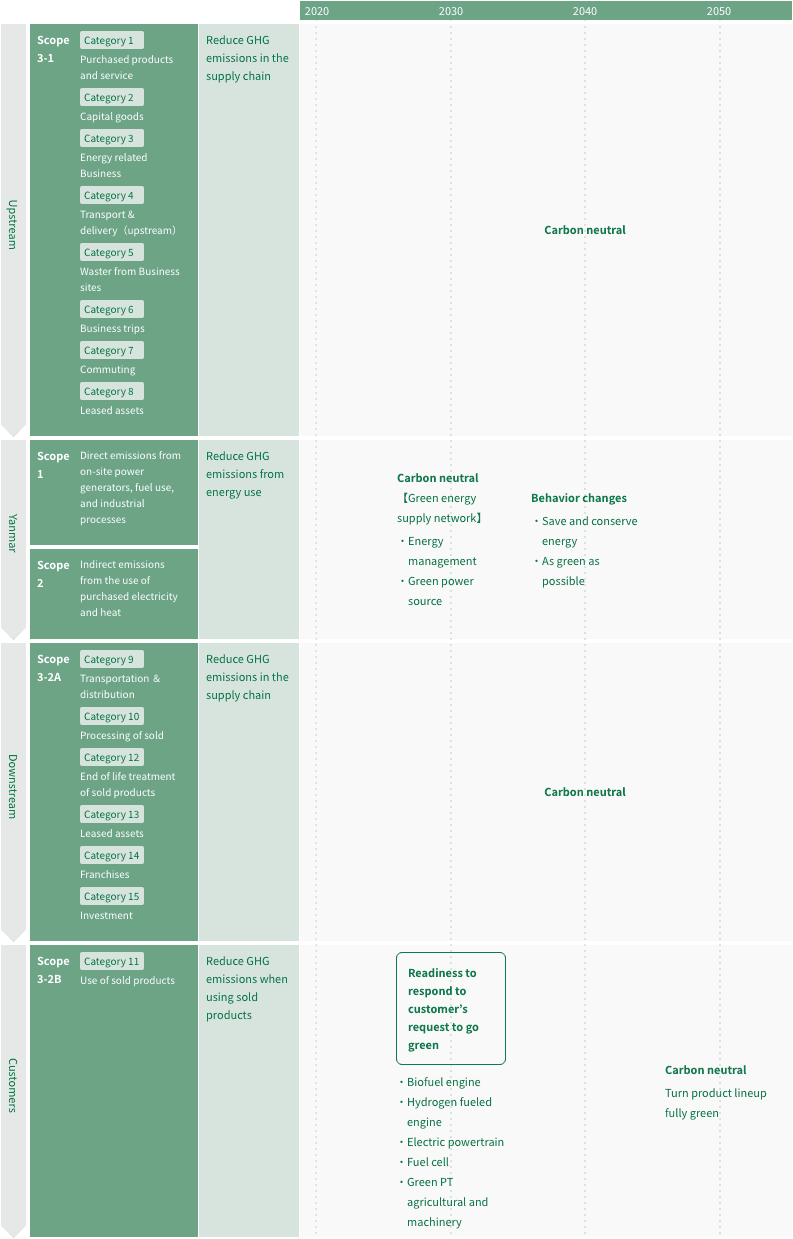

ตระหนักถึงผลกระทบต่อสิ่งแวดล้อมเป็นศูนย์จากกิจกรรมขององค์กรโดยหมุนเวียนทรัพยากร
ส่งเสริมการลด ใช้ซ้ำ และรีไซเคิลสำหรับแต่ละหัวข้อจากสี่หัวข้อ
In "Challenge 2", we set four themes and goals aiming to realize corporate activities to be environmental impact free. For example, in Theme 1 "Waste Reduction and Recycling," we will minimize the resources used in all aspects of our corporate activities, and at the same time, make all the resources we use recyclable by 2040. In this way, we aim to become a company that supports beautiful lifestyles while protecting the global environment from current activities, we set intermediate goals for 2030-2040 for each theme, and introduce improvements and new mechanisms to save the global environment step by step.
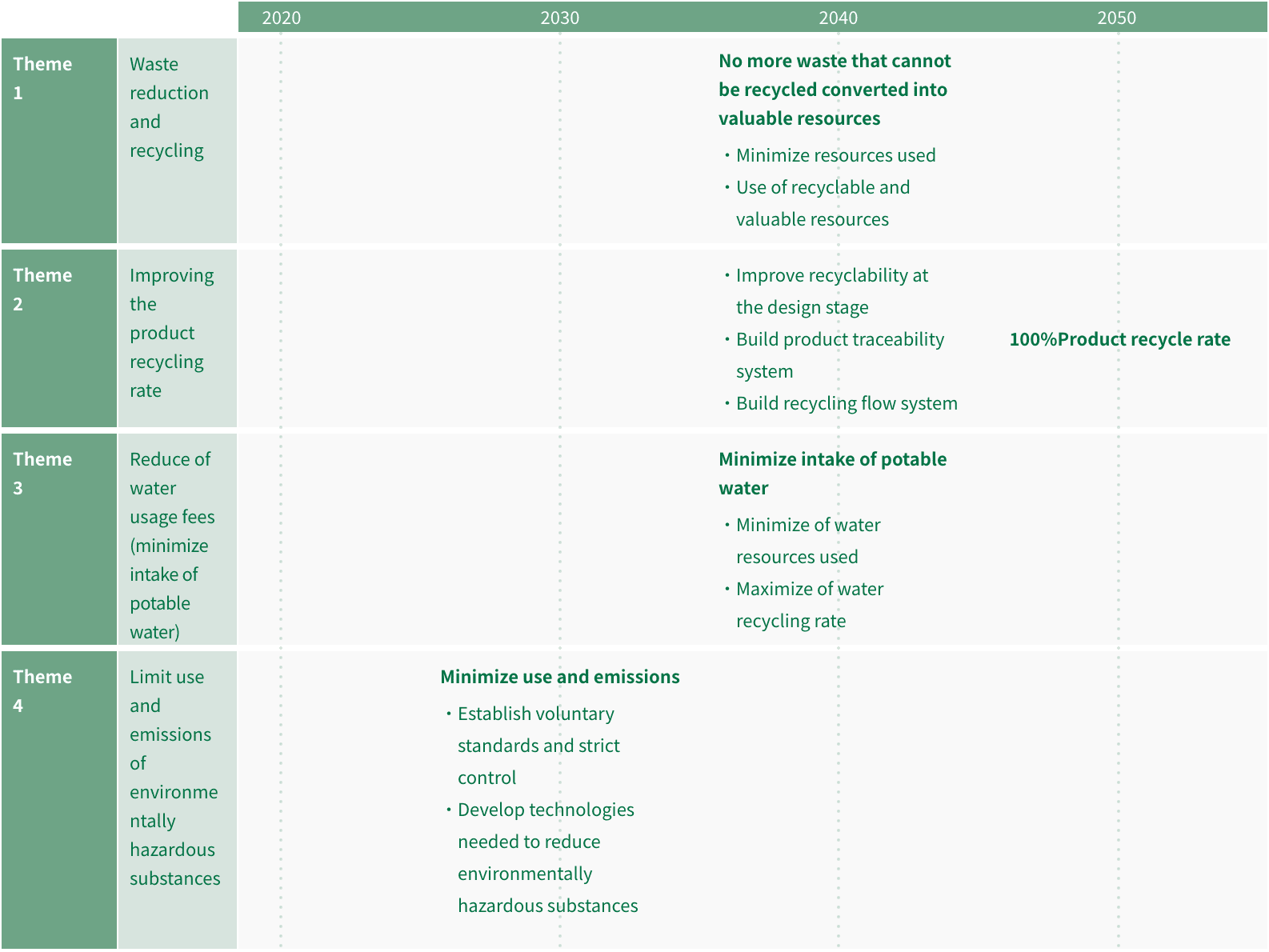

มีส่วนรับผิดชอบในการปล่อยก๊าซเรือนกระจกของลูกค้าและการหมุนเวียนทรัพยากร
จัดหาชุดโซลูชั่นใหม่นอกเหนือจากกรอบกิจกรรมองค์กรแบบเดิม
Under Challenge 3, the Yanmar Group will propose solutions to convert customer activities into GHG-negative and resource-recycling activities as active GHG reduction activities outside of the Group's corporate activities. For example, in the field of energy conversion, in addition to the energy management systems and high-efficiency internal combustion engines that we already provide, we also offer solutions to minimize the losses that occur during energy conversion and energy use in our customers' activities, such as solutions that convert waste heat into electricity and usable heat, and we aim to provide solutions such as CO2 capture and carbon fixation.
In the area of food production, in addition to solutions that support the minimization of input materials in food production, such as precision fertilization, we aim to provide solutions that recycle production residues and food residues generated during food production as energy and food production materials, such as composters and biomass gasification systems, and solutions that realize food production that contributes to environmental conservation and recovery, such as regenerative farming.
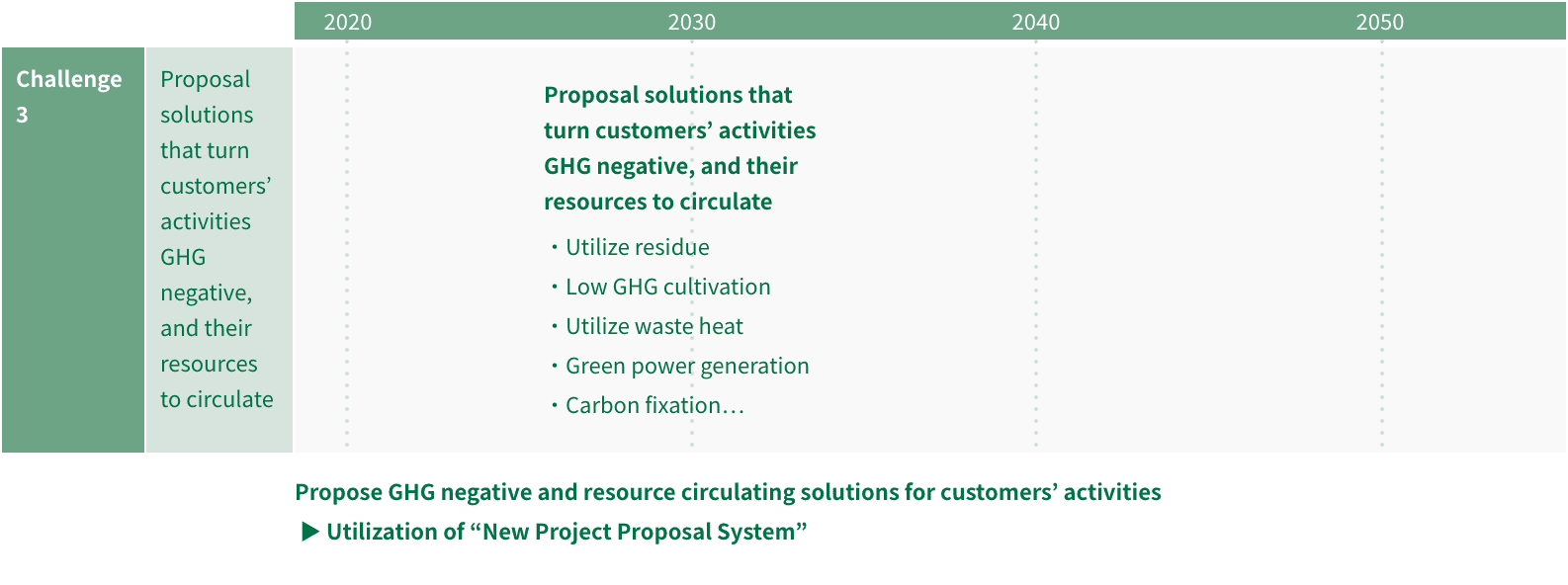

 การเกษตร
การเกษตร
 แทรกเตอร์
แทรกเตอร์
 อุปกรณ์ต่อพ่วง
อุปกรณ์ต่อพ่วง
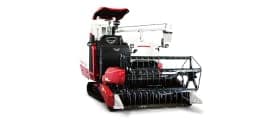 รถเกี่ยวนวดข้าว
รถเกี่ยวนวดข้าว
 รถดำนา
รถดำนา
 รถตัดอ้อย
รถตัดอ้อย
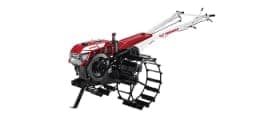 รถไถนาเดินตาม
รถไถนาเดินตาม
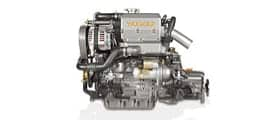 การเดินทะเลโดยสาร
การเดินทะเลโดยสาร
 การเดินทะเลเชิงพาณิชย์
การเดินทะเลเชิงพาณิชย์
 เผลิตภัณฑ์ไฟฟ้าขนาดกะทัดรัด
เผลิตภัณฑ์ไฟฟ้าขนาดกะทัดรัด
 สำหรับการก่อสร้าง
สำหรับการก่อสร้าง
 รถขุด
รถขุด
 อุปกรณ์
อุปกรณ์
 เครื่องยนต์เพื่อการอุตสาหกรรม
เครื่องยนต์เพื่อการอุตสาหกรรม
 ระบบพลังงาน
ระบบพลังงาน
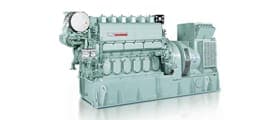 การผลิตไฟฟ้า
การผลิตไฟฟ้า